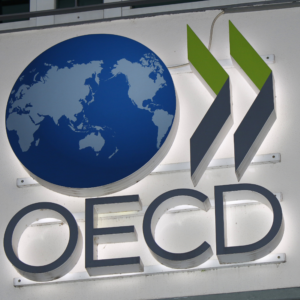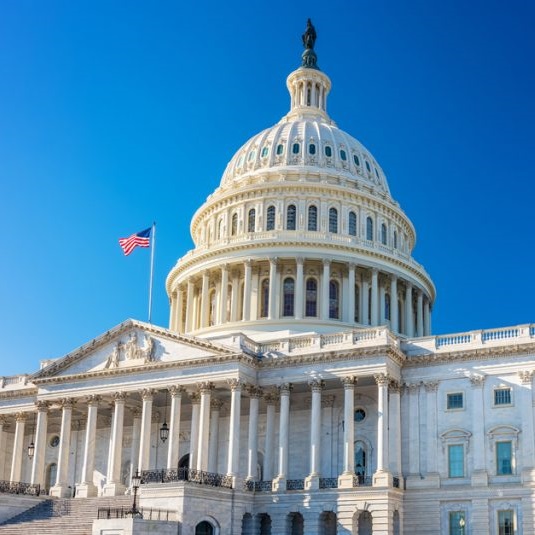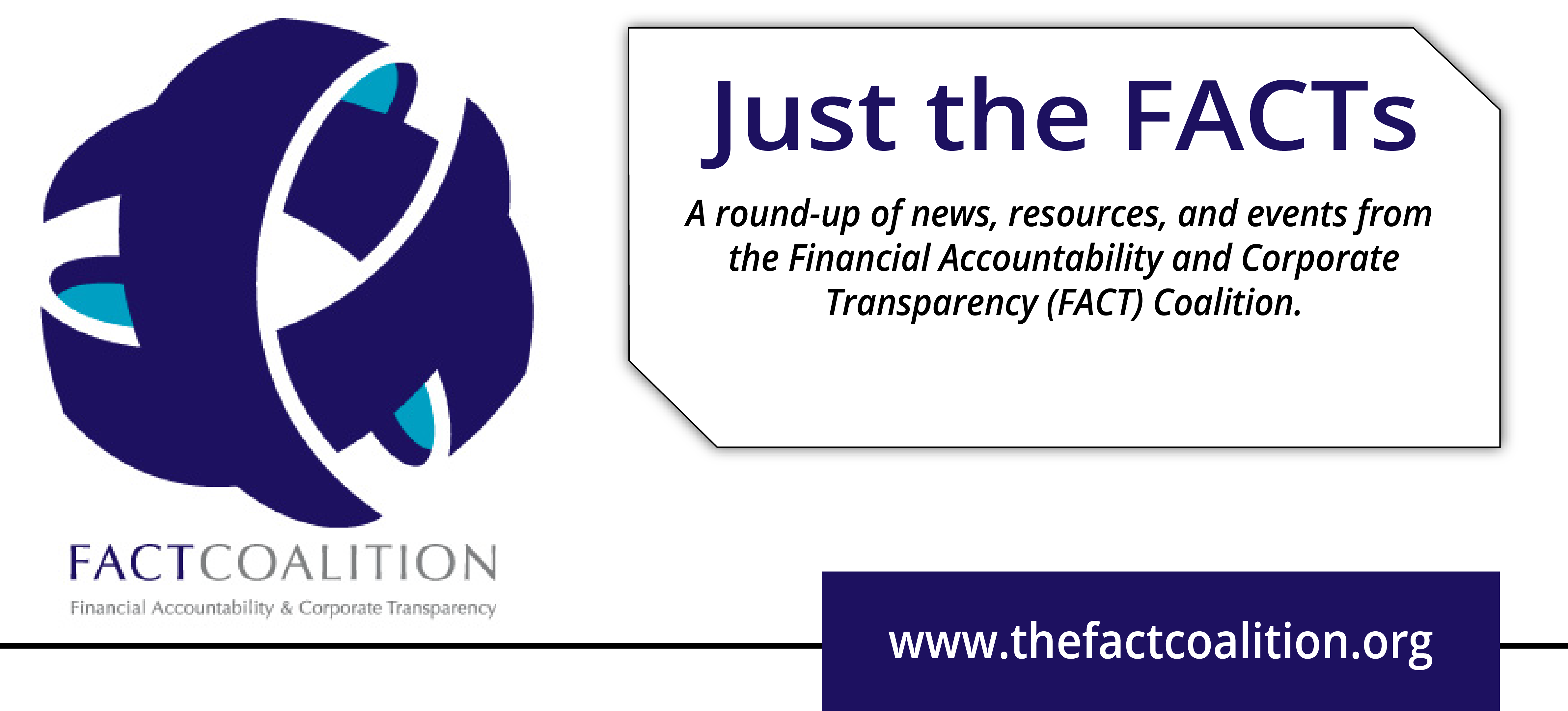“Just the FACTs” is a round-up of news stories and information regarding efforts to combat corrupt financial practices, including offshore tax haven abuses, corporate secrecy, and the laundering of money through the financial system.
Send feedback or items for future newsletters to Christopher Boose at cboose@thefactcoalition.org.
Here’s the State of Play
Tax Loopholes and Tax Transparency
Promise and Peril for Global Minimum Tax at OECD Negotiations

Following last month’s historic agreement on a 15 percent global minimum tax rate at the G7 Finance Ministers meeting, a groundbreaking 130 countries came together to support the Organization for Economic Cooperation and Development (OECD)’s Inclusive Framework, in another sign of accelerating progress on global taxation reform. While some countries have yet to sign on, OECD officials are optimistic. At a recent Tax Policy Center panel, the Deputy Director for the OECD’s Centre for Tax Policy and Administration noted that no countries have left the negotiations and that there is still time to settle details ahead of an October deadline.
While the Inclusive Framework announcement demonstrates a growing consensus, there remain key rate questions and technical details that must be worked out. For months, Secretary Yellen and other key negotiating figures have held fast to a rate of “at least 15 percent.” Global tax advocates are carefully watching to see how high that rate will go, if it moves at all. A low rate – paired with a policy of allocating taxing rights to headquarter countries – could be a non-starter for many developing countries in need of greater corporate tax revenues to fund their COVID recoveries. The Finance Minister of Argentina, a G24 country, has already come out and said that a 15 percent rate would be “too low,” looking instead for a 21-25 percent outcome.
Secretary Yellen has already made her pitch to Congress, forecasting widespread business support from multinational corporations in search of tax certainty. Her comments echoed the words of former Unilever CEO Paul Polman who, in May, penned an opinion in Fortune in support of a global minimum tax deal articulating how paying taxes makes for good business.
Charting a Course for Tax Reform through Congress

If successful, the OECD-negotiated deal would be the most sweeping reform to international corporate taxation in a century. It would also align with the Biden Administration’s $1 trillion-dollar plan to raise money from U.S. changes to its international tax code. The $3.5 trillion budget resolution opens the door to passing changes to U.S. international tax law as a key revenue raiser in the congressional budget reconciliation process. August will prove a key month as congressional finance and tax staffers negotiate a final proposal around where to raise much-needed revenues.
Recent nationwide polling by Americans for Tax Fairness showed widespread support for these changes to hold multinationals to account, with 70 percent of Americans supporting the President’s plan for international tax reform. Joining these efforts, FACT also sent its own letter to Congressional and Budget Committee leadership urging them to take up reform.
A New Path for Tax Transparency Opens as FASB Solicit Stakeholder Priorities
While the passage of the Disclosure of Tax Havens and Offshoring Act in the House raised hopes for a breakthrough on tax transparency, a new path outside Congress may be opening up to secure a win on public country-by-country reporting. In late June, the Financial Accounting Standards Board (FASB) released a new invitation to comment to solicit broad stakeholder feedback on the organization’s priorities. FASB sets and oversees the Generally Accepted Accounting Principles, the standard followed by most U.S. corporations in their financial reporting, and so could bring about widespread adoption of public country-by-country reporting as a way to ensure investors are fully able to assess reputational and regulatory risks in their portfolios. The deadline to submit comments is September 22 and FACT will be submitting comments along with concerned investors and other stakeholders.
Fighting Illicit Financial Flows
Beneficial Ownership Rule on the Horizon

FACT is preparing for a forthcoming draft rule to implement the Corporate Transparency Act, expected from the Treasury as early as next month. FACT will hope to see a final rule that reflects the input of our 157-page blueprint of recommendations. Concurrently, FinCEN needs resources to get the job done and build out a secure, effective database of beneficial ownership information. The House Appropriations Committee has recently approved $190.5 million in funding for FinCEN, fulfilling the Administration’s request. It is crucial that FinCEN receive similar support in the Senate to ensure it has the tools it needs to get the job done.
Internationally, the Financial Action Task Force has also re-opened discussion on reform with a request for public comment on their beneficial ownership recommendations. The move marks another opportunity to deepen reforms and accelerate global momentum behind financial transparency.
Congressional Caucus Against Kleptocracy Wraps #KleptoMonth

The Caucus Against Foreign Corruption and Kleptocracy wrapped up its first month with a wave of legislation, like the FACT-endorsed CROOK Act, to block criminal and corrupt actors from accessing our financial system and to push back against foreign kleptocrats. Paul Massaro, a policy advisor to the caucus, marked the introduction of the caucus-led Golden Visa Accountability Act with a piece in Foreign Policy sounding the alarm on money laundering risks presented by the EB-5 visa program, which has opened the door to cash investments of dubious origin in U.S. real estate market.
Senator Cardin, chairman of the U.S. Helsinki Commission and a key supporter of anti-kleptocracy legislation in the Senate, recently made appearances at both the Center for International Private Enterprise and the Center for American Progress building support for such legislation proposed by the caucus. Rounding out a month of anti-corruption momentum, FinCEN announced new whole-of-government priorities on anti-money laundering on June 30th. The new priorities mark one of the first deliverables from FinCEN in response to the passage of the Corporate Transparency Act/Anti-Money Laundering Act (CTA/AMLA).
Latest from FACT
| BLOG: Why I’m Enlisting in the Fight for Fair Tax and an End to Corruption with FACT July 23: FACT’s New Policy Director Ryan Gurule Shares Reflections on Why He’s Enlisting in the Fight for Fair Tax and an End to Corruption | |
| PRESS RELEASE: FACT Coalition Welcomes Ryan Gurule as Policy Director July 19: FACT Coalition Welcomes Ryan Gurule as FACT’s New Policy Director | |
| FACT SHEET: Overview of US International Corporate Tax Law July 10: An Overview of US International Corporate Tax Laws and a Comparison of Current Proposed Plans to Change Them | |
| LEGISLATIVE LETTER: FACT Sends Letter to Congressional Leadership Urging Action on International Tax Law July 9: FACT Sends Letter to Congressional Leadership Urging Action to Implement Biden’s Reforms on International Tax Law | |
| BRIEFING MEMO: The Foreign Derived Intangible Income (FDII) Deduction: Why It Belongs on the Chopping Block July 2: Eliminating the Foreign-Derived Intangible Income (FDII) tax break would both raise significant revenue and make for good policy. | |
| BRIEFING MEMO: International Tax Policy and US Competitiveness July 2: A major concern against Biden’s Made in America Tax Plan is that it could harm US competitiveness, however opponents overlook the existence of two different kinds of competitiveness–that of US multinational corporations and that of the US and its workers. |
FACT in the News
| QUOTED IN: ESG Push for Corporate Tax Disclosures Gaining Momentum in U.S. July 6: A Bloomberg review of the momentum behind corporate tax disclosure reform quotes FACT’s Erica Hanichak. |
Recent and Upcoming Events
| (RECENT) International Corporate Tax Reform: BEPS and Biden July 13: The Urban-Brookings Tax Policy Center held a panel discussing recent updates at the OECD Inclusive Framework on Base Erosion and Profit Shifting | |
| (RECENT) Third G20 Finance Ministers Meeting July 9-10: The G20 Finance Ministers, under the Italian Presidency, convened to focus on three broad, interconnected pillars of action: People, Planet, Prosperity. | |
| (RECENT) Tax Justice Network Annual Conference 2021 July 6-9: This year’s Tax Justice Network Annual Conference brought together researchers, academics, journalists, civil society organisations, consultants and professionals, along with elected politicians and their researchers, and officials from national governments and international organisations to discuss human rights and the 4 ‘R’s of tax justice: Revenues, Redistribution, Repricing, and Representation |
Social Media Shoutouts
@WaysMeansCmte, Today, Chairman @RepRichardNeal and @SenateFinance Chairman @RonWyden praised @POTUS and @SecYellen’s leadership after more than 100 countries agreed to support a global minimum tax rate of at least 15%.
@RepDonBeyer, ICYMI, a major win on the diplomatic and economic fronts yesterday as @SecYellen announced a breakthrough agreement with 130 nations on a global minimum tax on corporations. This is great for America, will significantly boost competitiveness for our workers and businesses.
@RepJudyChu, Global tax havens undercut our ability to invest in our communities. Imagine how many bridges or schools we could build with the billions lost through these havens? I’m glad to see @POTUS pushing for a global minimum tax to end these unfair practices.
About the FACT Coalition

